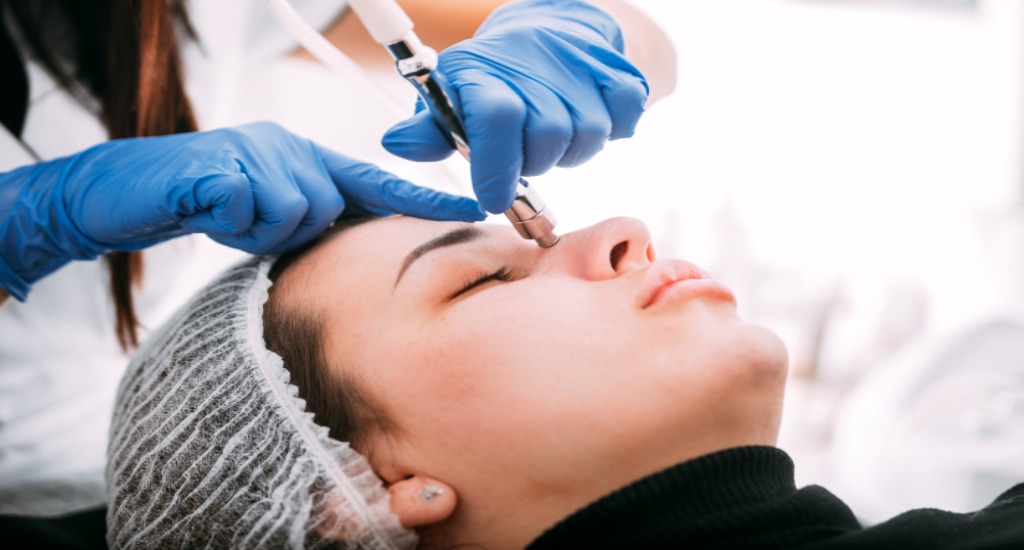Increased heart rate, deprived sleep, digestion issues—all these stress effects within our body are well noticed by us, but at the same time, we never pay attention or overlook the fact that stress and pollution can also affect our outside, including our hair and scalp which needs to be addressed along with consulting dermatologists online.
Skin and hair are closely related to various pressure factors like stress, air contamination, UV radiation, residue, and dry air on daily basis. Have you noticed hair strands in more quantity in your brush when you’re under stress? Or maybe an itchy and sensitive scalp? You might not have made the association at first go, however, what’s going on top of your head can be an impression of what’s going on in it. Have you ever thought of consulting a dermatologist online?
STRESS, POLLUTION AND HAIR LOSS
What precisely occurs and why: Psychological trauma or stress like separation, sudden demise of near ones, medical procedure or illness, childbirth, etc. can powerfully affect your whole body, consequently making hair fall out in bunches. Indeed, even the hormonal changes that happen due to beginning birth prevention pills may cause shedding.
Because of which countless hair follicles out of nowhere moves from the developing stage to the resting stage. (Typically just around 10% of follicles are resting at any 1 time, which is the thing that makes you regularly lose 100 hairs or so every day.) Deficiencies in supplements, for example, vitamin D and B, iron, zinc, magnesium, protein, and basic unsaturated fats can fuel the issue, so it is best to follow a good diet and take care of oneself during times of stress and get consulted online.
STRESS, POLLUTION AND SKIN ISSUES:
What precisely occurs and why: Skin disorder is a typical impact of stress that appears as skin inflammation. It normally appears as a red, irritated, scaly rash. With psoriasis, people typically show patches of hardened plaque with fine or thick silvery-white scales that can itch, bleed or flake. Stress and pollution with harmful radiation and dust present in air normally triggers skin disorders. This is because stress slows down skin mending, upsets skin’s natural healing process and establishes an inflammation- friendly environment. Psoriasis is an autoimmune disease but stress has been identified as one of the triggers to exacerbate already existing condition.
Here are other effects on skin and hair due to stress and pollution:
- Pollution takes away all natural oil and oxygen from your skin and hair scalp.
- A layer of dust is formed over skin that congests the pores leading to skin breakouts.
- Heat due to sun during day hours carry harmful UV rays of the sun which can result into cancer, rashes and other skin disorders. Pollution can cause numerous skin disorders and rashes.
- Stress can fuel psoriasis, rosacea, and eczema and also cause hives and trigger fever blisters on skin.
- Oxidative stress dulls our skin tone over time, and similarly the oxidative stress caused by air pollution leads to premature greying of hair.
- Pollution build up on hair scalp can lead to hair follicle damage, causing issues such as dandruff and irritation, and consequently lead to hair loss.
- Exposure to UV radiation is well-known to photochemically damage hair’s protein structure.
- Stress due to sleep deprivation can cause loss of skin elasticity and contribute to swelling puffiness and bags under your eyes.
- Chronic stress can be seen on face in different ways, such as hormones that body releases when one undergoes stress which causes physiological changes that negatively impact on the skin. And secondly stressed feeling can lead to bad habits like grinding your teeth or biting lips.
- Air may have toxic particles present in them, which can enter in blood stream and obstruct hair growth.
What You Can Do About It:
- Due to stress, your case can worsen, so it’s important to do a stress check.
- You can opt to use medicated volumizing or thickening shampoos, conditioners, and styling products for your hair to look fuller by consulting a dermatologist online.
- Likewise, you can opt-out of conditioners that are too strong and styling serums, which burden strands, and be gentle when caring about hair to avoid more loss.
- In the event that you feel like you are losing more hair than you would expect, or you are losing it rapidly, it is a warning sign to get an appointment with an online consulting dermatologist. A huge loss of hair can be a flag for a hidden condition, for example, anemia, polycystic ovary disorder, and certain thyroid problems. Air pollution accelerates skin aging and uneven skin tone also leads to skin aggravation like blackheads, whiteheads, acne, pigmentation.
- Consult an online dermatologist for skin anti-inflammatory or antihistamine ointments to soothe symptoms of eczema until your stress levels have come down.
- You can treat mild cases of psoriasis with medicated shampoos and other products containing salicylic acid, which help to slough off excess cells that build up and cause scaling. Severe cases, however, need more potent prescription medications, so talking to a dermatologist online is important.
- Avoid scratching or picking at your scalp, and be gentle when shampooing, towel drying, and brushing or combing your hair. If you still don’t see an improvement, you may consider consulting a dermatologist online. Psoriasis and eczema can be caused by certain food allergies or sensitivities (such as gluten intolerance), an imbalance in the healthy bacteria in your gut, or deficiencies in nutrients such as essential fatty acids.
Remember, the best way to address these symptoms is to manage your stress and what’s causing it; exercise, yoga, and meditation can all help, too. If your best efforts for stress management still leave you feeling burdened, you might also consider consulting with a psychologist online.







